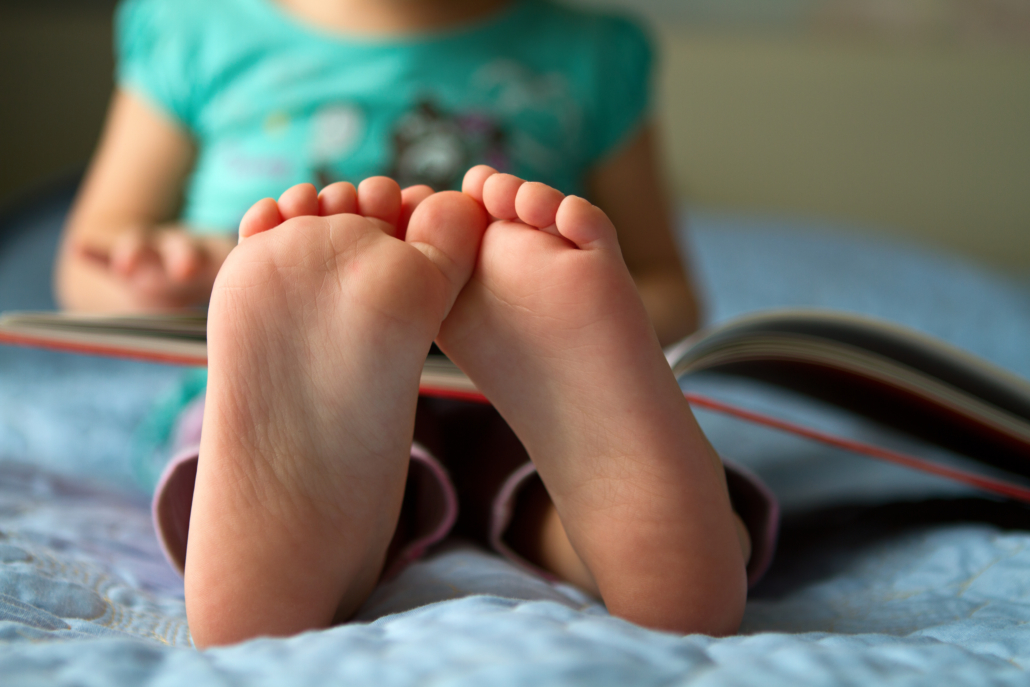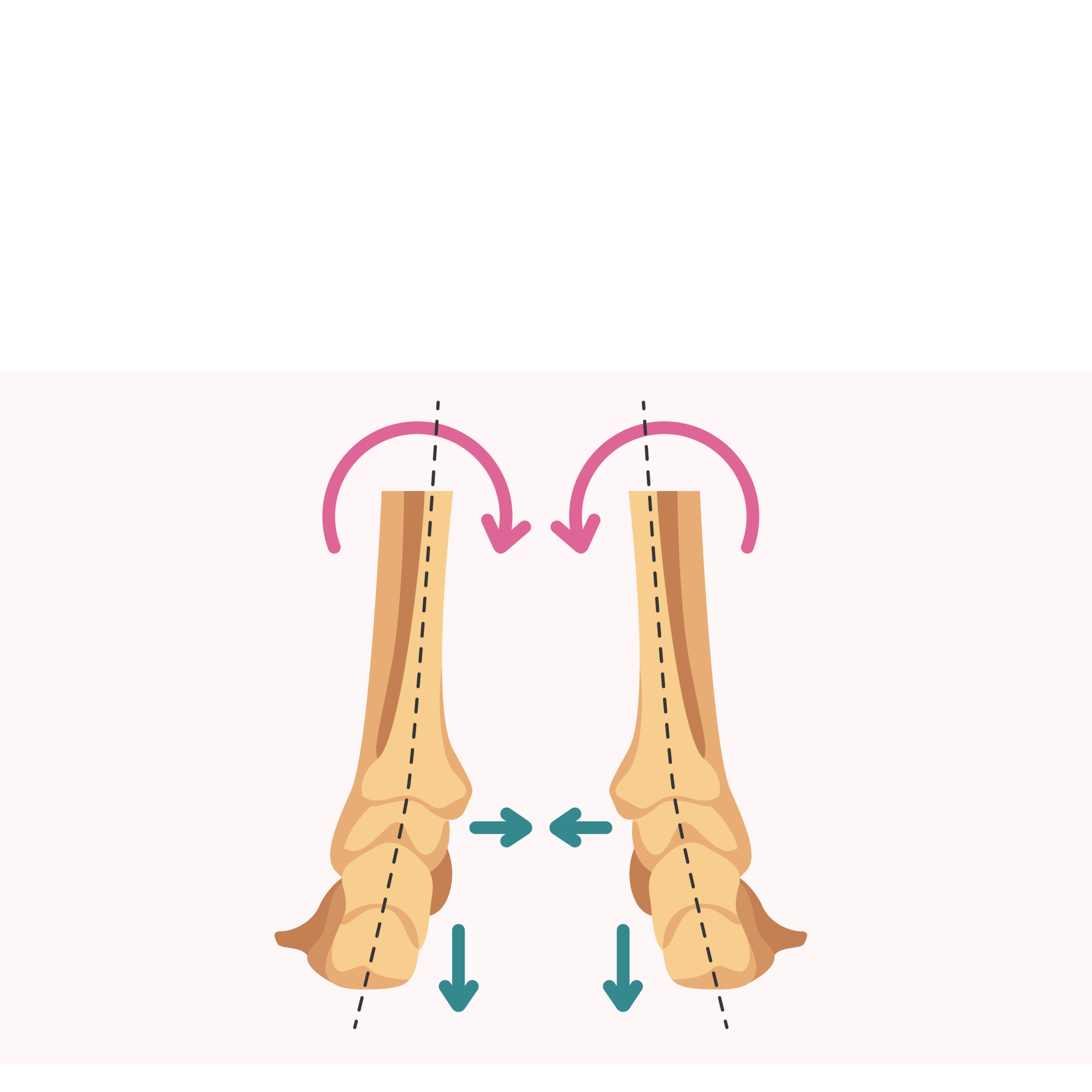

- Call 908 543 4390
- Email
- Dr.Joni Redlich PT,DPT



Did you know… there may be a link between your child’s core control and their level of anxiety? When we learned about this link, it just about blew our socks off… and then we quickly put them back on because it made so much sense to us!
People are always saying that core control and strength is SOOO important for kids and adults to move efficiently and to support our bodies. This is true and when someone has difficulties keeping their bodies stable and centered in one place for a bit of time, it is often related to their core strength or core control. This we usually expand beyond the idea of the core alone and relate this difficulty controlling the body to the term “postural control”. If you read our blog on a regular basis, you know that we talk about postural control ALL THE TIME! We talk about it so much because it is so important to everyday life and our ability to move through it with ease. If we can’t control our bodies in a still state, hold our bodies in an aligned posture, and activate our core in the right way, performing higher level tasks is HARD! If your child is focusing SO much on maintaining control of their body, any tricky coordination or tricky mind components of the task may be a very big ask and that specific task may be very hard for them to do.
We see this and recognize this in many of the kiddos we treat, which is why we are always mindful of adjusting a task to meet them where they are at that given point in time. Although we are always thinking in this way, what we hadn’t necessarily thought about was how difficulty with postural control and core activation may be linked with emotions, specifically elevated levels of anxiety.
HOW you ask? In a study performed comparing the balance and postural reactions of children with anxiety to children without anxiety, it was found that during simple balance tasks, children with anxiety exhibited greater postural sway with less variety when compared to children without anxiety. The differences between the two groups grew larger as the balance tasks became more challenging. The researchers concluded that the pattern of postural sway they saw suggested that decreased stability during balance tasks causes the task to demand more attention. This, they felt, may explain the link between decreased balance and higher levels of anxiety in children.
SO, if your child has more trouble controlling their posture at baseline, they may be devoting more attention to postural control at all times. When they send more attention to their body in that way, it takes up cognitive power that they need to complete hard school tasks or that they need for harder motor tasks… AND life demands them to do these higher level tasks ALL THE TIME. This has the potential to increase their anxiety and overall frustration when asked to do these challenging things. As is stated above, researchers predict that this may be why these two things are linked, because the mind is being forced to devote attention to SO MANY hard things all at the same time, and that shifting attention in this way is STRESSFUL. This is especially so because as children shift some of the attention they are giving to maintain their postural control away from the body and toward another task, they may start to lose their balance, forcing the brain to give that attention back AND then they complete the big task in a slightly haphazard way.
If your child has trouble with balance, they may benefit from physical therapy. We look at each child as a whole being and consider more than just the basics of balance and strength, because we as human beings are so much more than just these things! If you are curious about physical therapy for your child and want to test the waters, come in for a free Discovery Visit to see if we are the right fit for you, your family, and your child. Don’t worry, there are so many things in life that make us stressed and nervous but we have your back and we are here for you! Breathe in and out , everything is going to be okay!
Resources:
Everyone is always saying “Exercise is good for you!”… yeah yeah we’ve all heard that before. We know that exercise makes our bodies healthier BUT did you know it can make your mind happier too?? This month is National Mental Health Month. We wanted to raise awareness this week by helping you understand WHY exercise can lift you and your child’s moods and help to reduce unwanted stress at the chemical level (aka within the brain)!
When we exercise, our brains release something called ENDORPHINS. Endorphins are released when our body feels physically exerted, which usually happens when we start to sweat, our heart rate goes up, and our cheeks turn pink! When our brains release endorphins, this helps to decrease our responsiveness to pain and also relieves stress within the brain. Also when we exercise, our brains release many mood-boosting chemicals. These are called DOPAMINE, NOREPINEPHRINE, and SEROTONIN. These brian chemicals are all responsible for regulating our mood and promoting internal happiness on short and long term scales. One of the really cool things about Serotonin is that when we exercise regularly, the levels of serotonin in the brain have been shown to increase over a longer period of time. This promotes a greater sense of well-being, which can help your kiddos feel very secure.
Another great benefit of exercise is that it decreases potentially harmful stress chemicals, specifically adrenaline. With regular exercise, the levels of adrenaline in the brain become more balanced. If your kiddo exercises on a regular basis, this may help them feel less of this hormone which tends to make people very stressed out when over produced.
We know hormones and brain chemicals can get very complicated very quickly BUT the bottom line is….Regular exercise can make your and your child’s brain happier and less stressed. No matter what that exercise might look like for you and your kids, as exercise comes in many forms for many types of bodies, it is important to move in a way that is healthy for your and your child’s body as much as is possible!
Looking for ideas to jump start your family’s movement today? Watch this youtube video created by Coach Corey Martin, he will have the whole family ducking, dodging, and jumping over imaginary obstacles in no time!
Information retrieved from:

 Feet come in many different variations and all feet are different! As physical therapists, when we take a first look at your child, we always make sure to look at their feet along with the rest of their body. Sometimes the way the feet are structured OR the way they move when your child stands on them can make balance VERY hard. What do we mean by this? Sometimes the feet have a little bit of extra motion to one side or the other. When this happens, the heel will often make a C shape, and that C can either point out or point in when you are looking at your child’s foot from the back. If the C’s point out, with the curve of the C in the middle, they may also have a “dropped arch” or a “flat arch”. If it looks like your child’s arch is close to the ground when you look at the inside of their foot, they may have arches that are more on the “flat” side.
Feet come in many different variations and all feet are different! As physical therapists, when we take a first look at your child, we always make sure to look at their feet along with the rest of their body. Sometimes the way the feet are structured OR the way they move when your child stands on them can make balance VERY hard. What do we mean by this? Sometimes the feet have a little bit of extra motion to one side or the other. When this happens, the heel will often make a C shape, and that C can either point out or point in when you are looking at your child’s foot from the back. If the C’s point out, with the curve of the C in the middle, they may also have a “dropped arch” or a “flat arch”. If it looks like your child’s arch is close to the ground when you look at the inside of their foot, they may have arches that are more on the “flat” side. Arches that are on the “flatter” end of the spectrum are not necessarily all bad, they absorb forces nicely when someone walks or runs. With enough foot strength, an arch that is on the flatter side can be very strong and can maintain that strength when challenged by difficult activities like walking, running, jumping, etc. When flat arches DO become a problem is when they start to affect a child’s balance and development of gross motor skills, like standing and walking.
Arches that are on the “flatter” end of the spectrum are not necessarily all bad, they absorb forces nicely when someone walks or runs. With enough foot strength, an arch that is on the flatter side can be very strong and can maintain that strength when challenged by difficult activities like walking, running, jumping, etc. When flat arches DO become a problem is when they start to affect a child’s balance and development of gross motor skills, like standing and walking. 